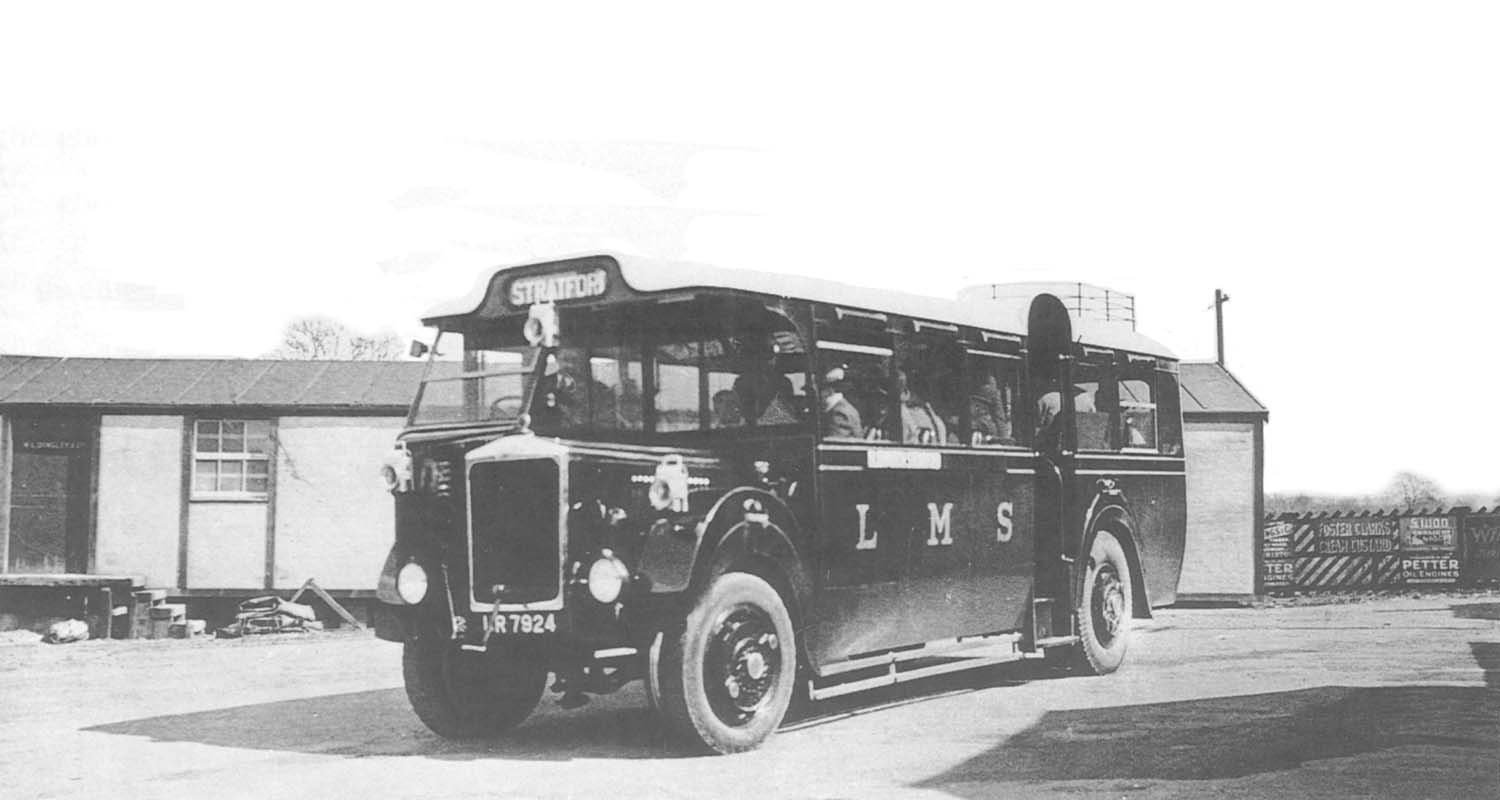 |
|
London North Western
Railway:

Midland
Railway:

Stratford
Midland Junction Railway
|

|
LMS Route: Stratford Midland Junction - The Shakespeare
Route
E&WJR and SMJ - Locomotives and Rolling Stock:
smjsa313
 |
The Ro-Railer about to leave Stratford upon Avon goods yard
for the Welcombe Hotel in April 1932. April 1932. Arthur Jordan wrote in his
book 'The Stratford upon Avon Midland Junction Railway', 'the vehicle was
built to LMS specifications by Karrier Motors of Huddersfield in 1931, the body
being constructed by Cravens of Sheffield. It underwent initial trials on the
Harpenden-Hemel Hempstead branch. The six-cylinder engine was rated at 37.4hp,
with a maximum of 120hp, and was capable of 60mph on roads or 75mph on rails,
it was claimed. Although the latter figure may reflect a degree of optimism, it
did achieve 50mph on several occasions. It weighed 7 tons 2 cwt and was
outwardly similar to contemporary road motorbuses, except for the addition of
buffers, drawgear, lamp irons and sanding apparatus (Note the buffers and
drawgear were NOT a statutory requirement - Ed). The most important feature,
however, was its ability to change from a road vehicle to a railcar.
Pneumatic-tyred road wheels were mounted on eccentrics fitted to the outer
extensions of the rail wheel axles. Whilst running on the road, these tyred
wheels were locked in a position concentric to the axle. The changeover from
road to rail operation generally took five minutes (although 2½ minutes
was possible) and was achieved by running the vehicle onto a wooden ramp,
similar to a level crossing (see image 'smjsa307'). The claim that the wheel change could
be undertaken in such a short time is considered by many to be extremely
optimistic.
 back back

|
